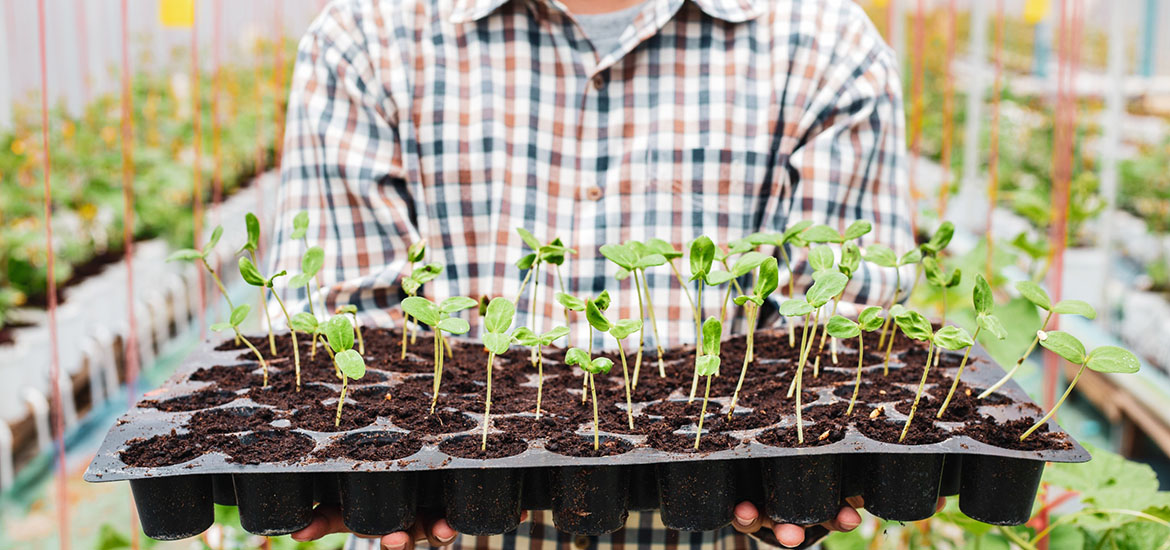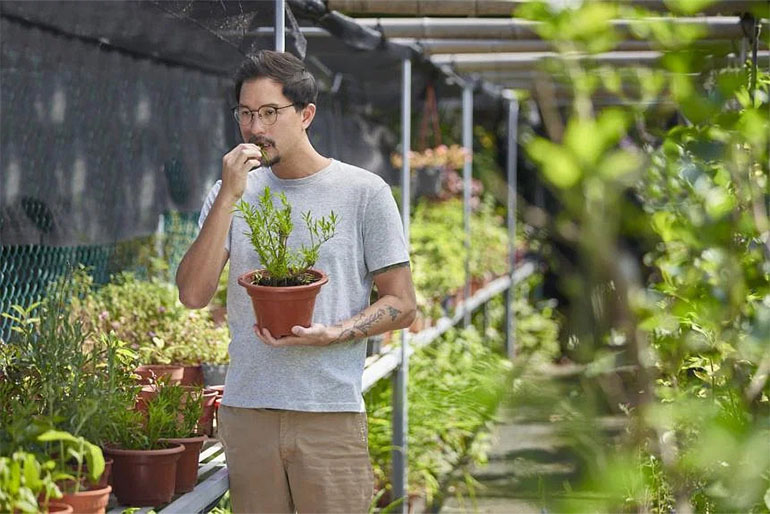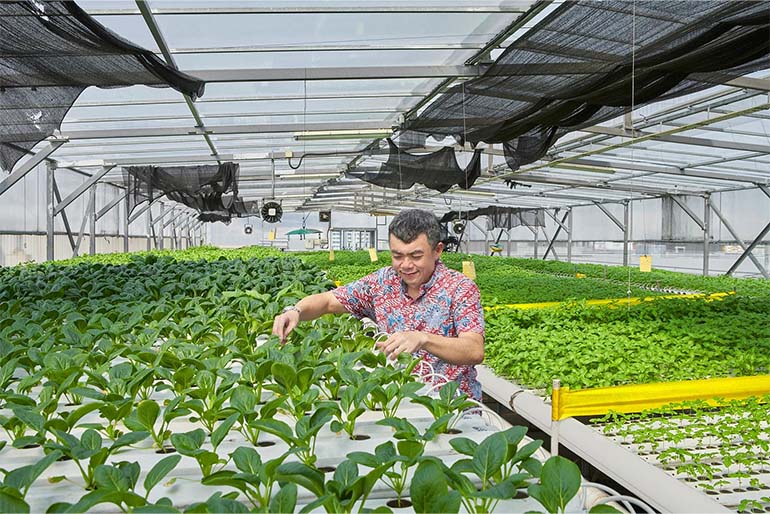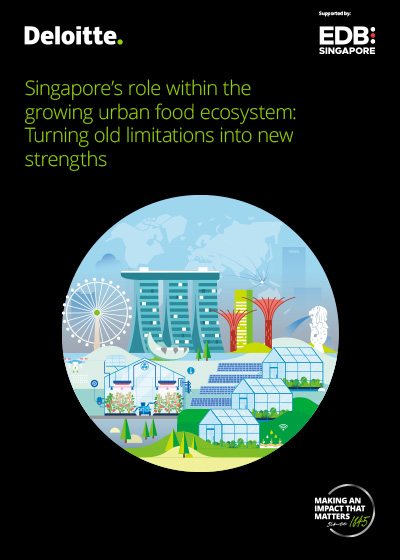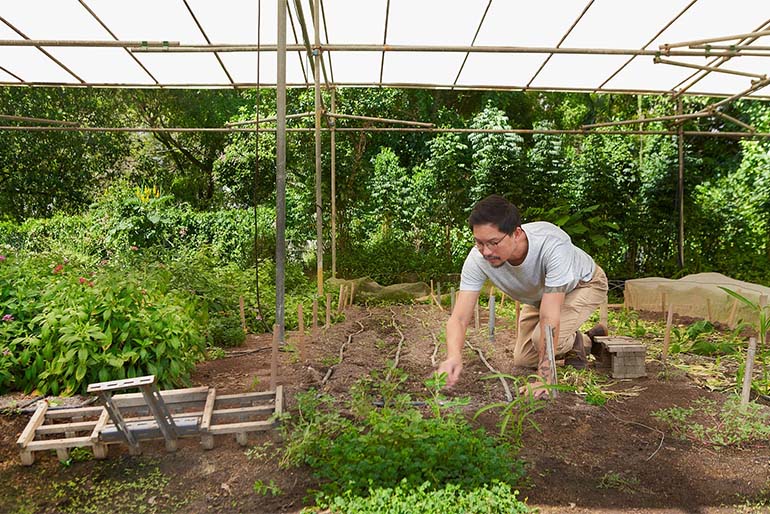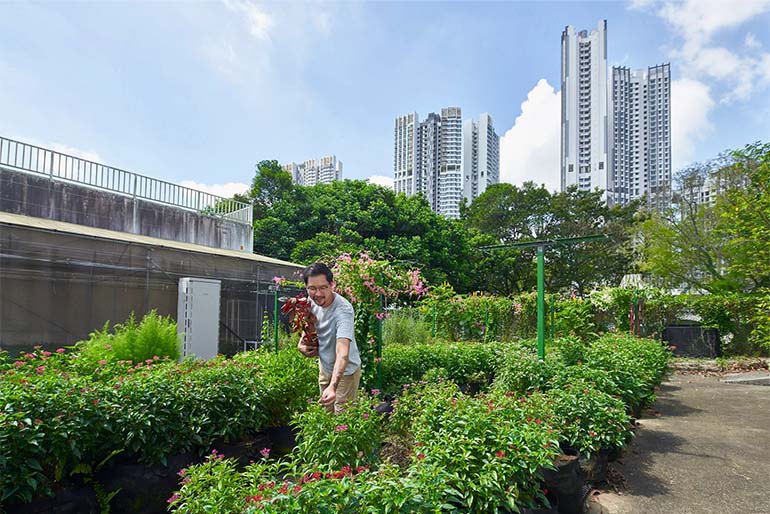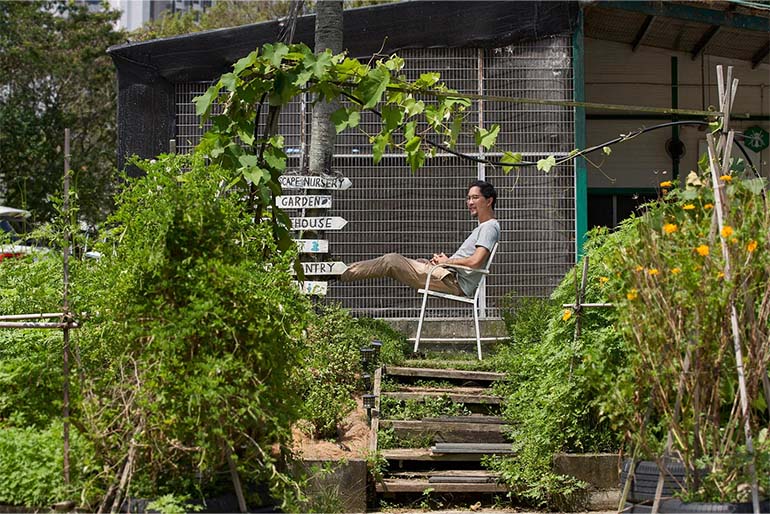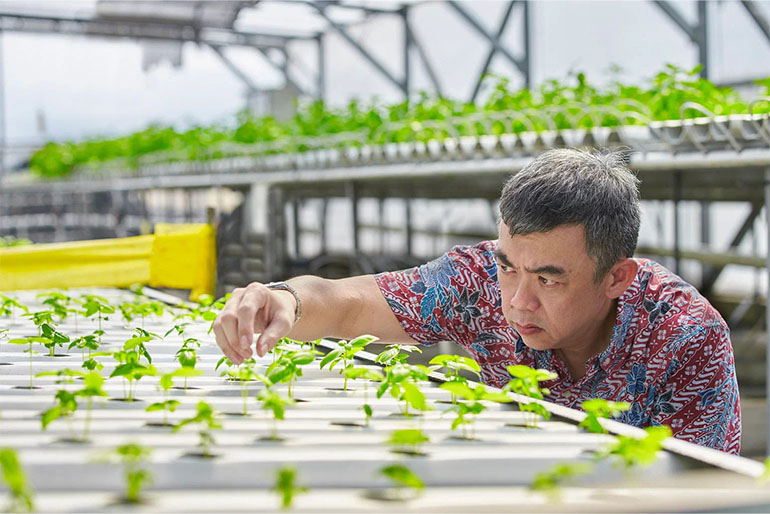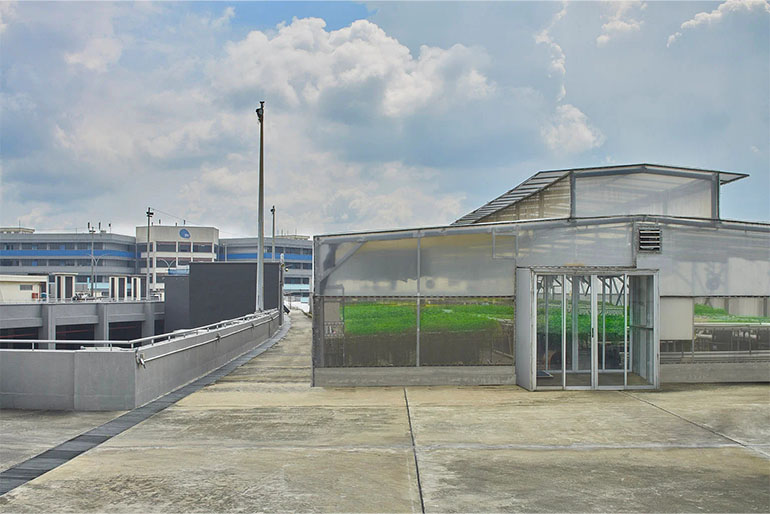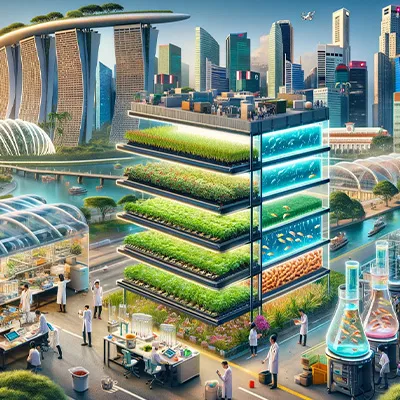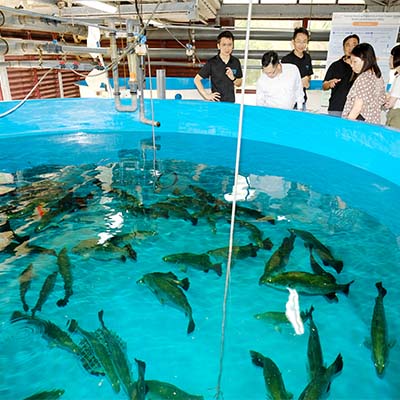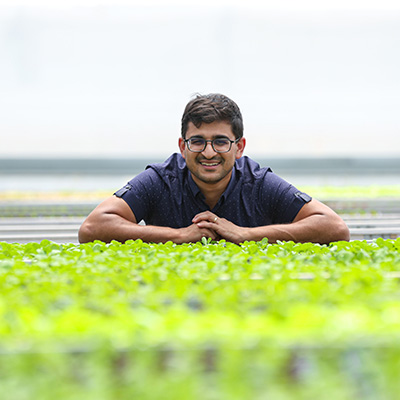With the government’s support, ComCrop created the country’s first rooftop farm at *Scape mall in Orchard Road, in 2014. The experience was formative. “We wanted to install an aquaponics system for efficiency, but nobody in Singapore had done it. We couldn’t buy systems off the shelf or get anyone to ship them to us.”
Mr Lim and his partners designed and built an aquaponics system from scratch, buying pipes from plumbing companies and drilling 14,650 holes in them to grow plants before assembling them. As they ran the farm, setbacks tested their determination, including an outbreak of blight (a type of plant disease) that wiped out all 400 of their tomato plants in a week.
ComCrop continues to make advances. In 2019, it was the first in Singapore to use the nutrient film technique, which requires minimal water, to grow crops. Mr Lim also advised Republic Polytechnic on setting up its part-time Diploma in Applied Science (Urban Agricultural Technology), the first full-qualification course in Singapore that focuses on urban farming.
At 3,500 sq m, the company’s second and much larger rooftop farm in Woodlands has greenhouses with climate control, automated systems and other technologies. It currently produces up to 200 tonnes of vegetables, including chye sim, dou miao, mint and basil, every year, for local consumption. The vegetables are sold to households and businesses, and in supermarkets.
It has held fast to its three founding principles too: Use marginalised land; tap on technology to engage communities, such as harnessing automation so it can employ seniors and people with special needs; and grow food as sustainably as possible, including avoiding the use of pesticides.
Mr Lim shares: “It’s been a long journey. Now, I see communities coming together to farm, more households setting up hydroponics at home, parents coming to ask if their children can intern at our farm. I want more Singaporeans to love growing and buying local food. It’s better for everyone, and the environment.”
We The Earth is a partnership between The Straits Times and Rolex and its Perpetual Planet initiative. Urban farmers Bjorn Low and Allan Lim are stellar examples of the many individuals who are doing their part to solve the issues earth faces.
Source: The Straits Times © SPH Media Limited. Permission required for reproduction.
